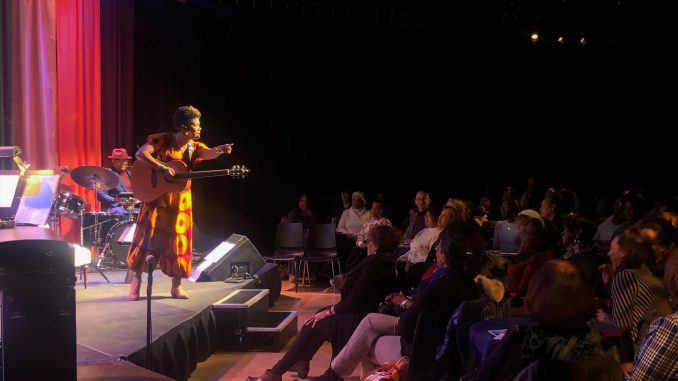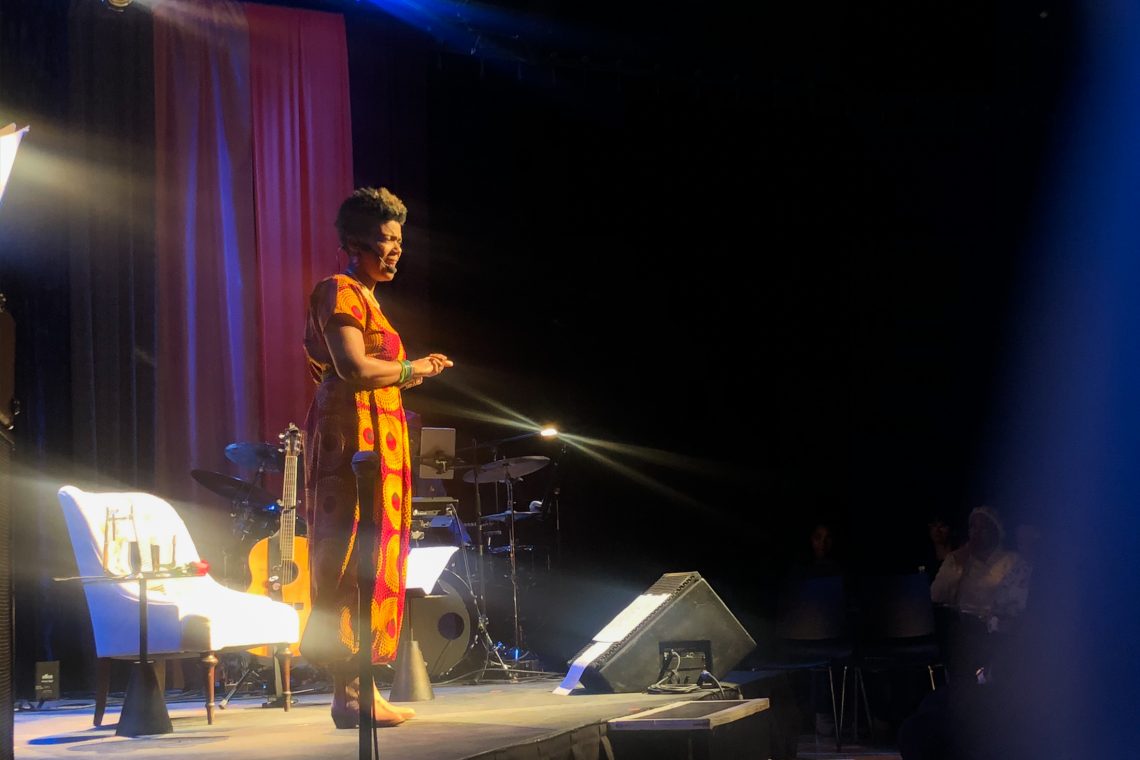
M’Balia Singley played the piano growing up. She always knew she wanted to do something with music.
“I just find black people to be very musical in some way because so many African Americans are raised and affiliated with a house of worship,” said Singley, a former law student.
Singley debuted “Turn,” a comical musical based on William Shakespeare’s play, “Othello,” to depict the life of Black women in the United States. The world premiere of the show ran at The Kimmel Center through Feb. 29.
Othello revolves around an African general in the Venetian army who suspects adultery from his wife which leads him to eventually kill her. Singley uses the themes of societal expectations and racism within Othello to illustrate the issues that black women are faced with.
Singley’s wants people to see the life of Black women in a more universal and relatable way through her performance, she said.

“One of the things I hope people think about if they’re coming to see it is how can we get a Black woman’s story to be universal because it is,” she said.
Singley narrated the story of Othello during her performance while making connections to her life.
She sang some of her songs that emphasized various themes and scenes from the play that mirror her own life. The opening song of the play repeatedly touches on the ironic nature of the performance as she sings the lyrics, “Shakespeare sucks,” with the band playing in the background.
Darryl Hamlet, who saw the performance for the first time, said he was impressed by the creativity and emotions in the performance.
“There were parts of it that made me cringe, there are parts of it that are very joyful and warm, and there are parts of it that are very exposed and naked,” Hamlet said.
Singley was a member of the Kimmel Center Theater Residency program, a two-week annual intensive art and performance program. Through this residency program, she was able to write “Turn.”
Singley originally wanted to make the project a soundtrack but used the opportunity at the residency program to build on it.
“Those two weeks at the residency really allowed me to overcome this distance I had with it,” she said. “I was able to dig deeper in and really allow my story to come through.”
Singley graduated from Yale University in 1994 with a Bachelor of Arts in history. Temple’s law program pushed her to be disciplined and work hard, allowing Singley to improve her work ethic and productivity, she said.
“That rigorous curriculum definitely prepared me in terms of time management,” Singley said. “Law school told me to approach hard work with a mindset that there may be some slippage but it’s doable, just one bit at a time.”
Singley has previously performed at Jazz Standard, a jazz club in New York City, and World Live Cafe. She also provided background vocals for John Legend’s Grammy-nominated debut album, “Get Lifted.”
Stan Davis, who performed bass in Turn, said he enjoyed the sense of camaraderie among the production members, he said.
“I’ve known [Singley] for a long time and I’ve known Mateo, our piano player for a long time, so when they called me I was excited,” he said. “This crew is second to none, this band is second to none and they bring such a positive energy to the stage and I’m honored to be a part of it.”
Singley would like to see the show go on tour, she said. She is also working on producing other musicals in which she isn’t starring.
“There’s a lot that I have planned but I know music and art will always be a part of my life and I think it should be a part of everyone’s life,” Singley said. “Art is a very safe way to talk about things we cannot talk about.”



Be the first to comment